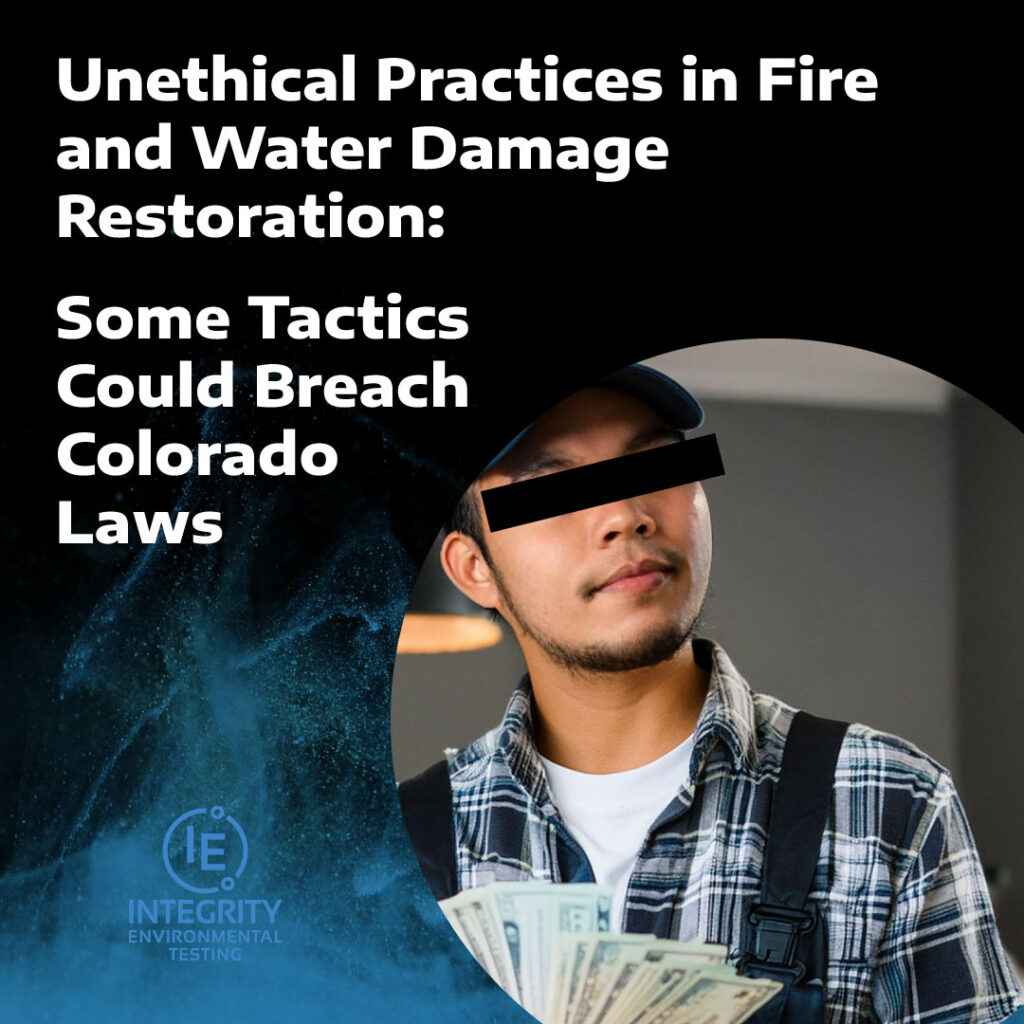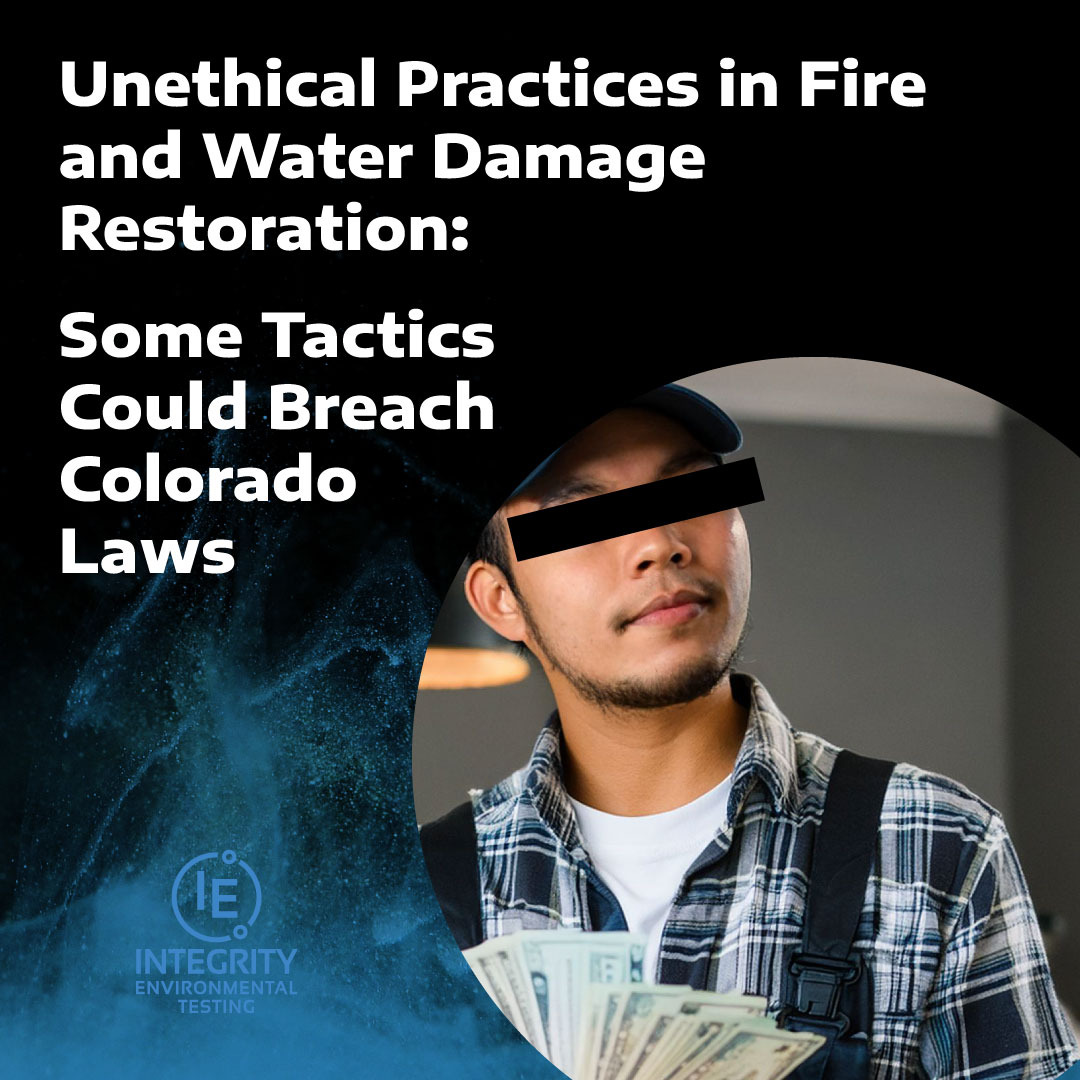When disaster strikes, navigating insurance claims to bring your home back to a healthy and safe place can be overwhelming. Unfortunately, some insurance companies employ Unethical Insurance Practices for Fire and Water Damage Restoration, aimed at minimizing payouts or denying legitimate claims. Homeowners rely on insurance policies for financial protection during crises like fire, smoke and water damage. We also tend to unreasonably rely on them for information on how to proceed. In Colorado, where specific laws govern insurance practices, such practices are not just unethical but could be illegal. So, how do insurance agencies potentially violate Colorado laws?
Failure to Honor Homeowner Policy Terms for Fire and Water Damage
Colorado law mandates insurance companies adhere to the terms outlined in policies. Attempts to deny coverage or delay payouts without valid reasons may breach state laws. Tactics like retroactively altering policy coverage or misinterpreting policy language to deny rightful claims are far too common, in our experience.
Colorado requires insurers to provide clear and accurate information on coverage, claim procedures, and settlements. Misrepresenting policy provisions or the claims process may be considered deceptive. Some of these unethical insurance practices can include tactics like providing false deadlines or misleading statements to induce preferred contractor use may breach laws governing fair trade practices.
The State of Colorado offers further guidance on understanding homeowners insurance.

Coercive, Unethical Practices from Insurance Companies
The Colorado Freedom of Choice Law, HB 07-1104, grants homeowners the right to select their restoration contractor post-disaster. Insurers are prohibited from coercing or incentivizing policyholders to use specific contractors. Pressuring homeowners to accept inadequate settlements or falsely claiming contractor preferences affect claim payment could violate consumer protection laws.
Unreasonable Delay in Claims Processing
Tactics aimed at prolonging the claims process to discourage policyholders may violate laws on prompt claims handling. Insurers in Colorado must promptly process claims and respond to policyholders. Deliberate delays, such as ignoring communications or extending investigations unnecessarily, could be illegal.
Unfair Settlement Practices
Tactics such as underpaying claims using software programs or disregarding valid evidence may contravene laws protecting consumers’ rights. Colorado prohibits insurers from engaging in unfair settlement practices, like offering unreasonably low settlements without justification.
Insurers in Colorado are expected to conduct business ethically and comply with state laws. Tactics aimed at minimizing claim payouts through coercion or misrepresentation may breach both ethical standards and legal requirements. Homeowners facing such tactics should be aware of their rights under Colorado law and seek legal assistance if needed. By holding insurers accountable, homeowners can ensure fair treatment and swift resolution of their claims during challenging times.
See the full Register of Colorado’s Insurance Regulations here.
*While we strive to provide helpful and accurate information, it’s important to note that we are not legal experts. If you have concerns about whether your insurance company is handling your claim within the bounds of the law, we strongly advise consulting with a qualified attorney who specializes in insurance law. You can also file a complaint with the state’s regulatory body, the Division of Insurance. The content provided here is intended for general informational purposes only and should not be construed as legal advice. Your individual circumstances and policies will vary, and seeking professional legal counsel can ensure that you receive guidance tailored to your specific situation.

